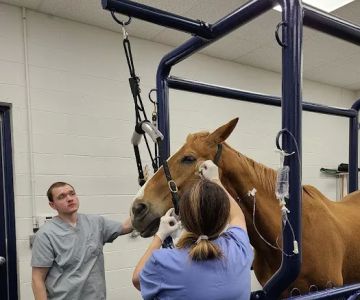Which States Allow Non-Veterinarian Ownership of Veterinary Practices?
- Understanding Non-Veterinarian Ownership
- States That Allow Non-Veterinarian Ownership
- Benefits and Challenges of Non-Veterinarian Ownership
- Steps to Ownership in Eligible States
- The Future of Veterinary Practice Ownership
Understanding Non-Veterinarian Ownership
For many years, the ownership of veterinary practices was exclusively reserved for veterinarians. However, the landscape of veterinary practice ownership has begun to change. Non-veterinarians, including investors and business professionals, are increasingly allowed to own veterinary practices in some states. This shift is creating new opportunities for those interested in entering the veterinary business, but it also raises important questions about regulation, ethics, and the implications for veterinary care.
States That Allow Non-Veterinarian Ownership
The rules regarding non-veterinarian ownership vary widely from state to state. Some states have specific laws that allow non-veterinarians to own veterinary practices, while others have restrictions or outright bans. States like California and Florida have been pioneers in this area, allowing certain forms of non-veterinarian ownership under specific conditions. These laws generally focus on ensuring that veterinary care is not compromised and that licensed veterinarians are still in charge of medical decision-making.
As an example, in California, non-veterinarian ownership is allowed, but the majority of the practice's operations must still be overseen by a licensed veterinarian. On the other hand, Florida has allowed non-veterinarians to own up to 49% of a veterinary practice, meaning a majority of control remains with veterinarians. This provides opportunities for investors to become involved in the veterinary field while ensuring that medical integrity is maintained.
Benefits and Challenges of Non-Veterinarian Ownership
Non-veterinarian ownership can provide several benefits, especially in terms of business development, marketing, and finance. Investors who are not veterinarians but have experience in managing businesses can bring a fresh perspective to the operations of a veterinary practice. This can lead to better financial management, improved marketing strategies, and potentially increased access to capital for practice expansion or improvements.
However, there are also challenges associated with this type of ownership. One of the primary concerns is maintaining the ethical standards and quality of care that patients receive. Veterinary professionals worry that non-veterinarian owners may prioritize profitability over animal welfare. To address this, many states impose strict regulations to ensure that licensed veterinarians retain control over medical decisions. This balance is critical in maintaining the trust of both clients and staff.
Steps to Ownership in Eligible States
If you’re interested in pursuing non-veterinarian ownership of a veterinary practice, there are several steps you’ll need to follow. The first step is to thoroughly research the laws in your state to ensure that non-veterinarians are allowed to own veterinary practices. Each state has different requirements regarding the level of involvement that non-veterinarians can have, so it’s essential to understand these rules before proceeding.
Once you’ve confirmed that ownership is permitted, the next step is to find a veterinary practice that is open to ownership offers. Many existing practices may be looking for investors or business partners to help them grow. It’s important to build relationships with veterinary professionals to understand their needs and goals. Additionally, working with a legal professional who specializes in veterinary law can help you navigate the complexities of ownership agreements and ensure that everything is done within the confines of the law.
The Future of Veterinary Practice Ownership
As the demand for veterinary services continues to grow, there is a trend towards more flexible ownership structures, including the opportunity for non-veterinarians to own practices. This evolution is driven by the need for better business practices and greater access to capital. However, it’s crucial that future developments in veterinary ownership continue to focus on maintaining the quality and ethical standards of veterinary care.
In the coming years, it’s likely that we will see more states adopting laws that allow non-veterinarians to own veterinary practices. As this trend grows, it’s important for potential owners to stay informed about changes in legislation and to actively engage in the conversation about how non-veterinarian ownership can benefit both the business side and the medical side of veterinary care.











